Feel like you’re constantly cleaning? Though it’s important to ensure your living space is clean and sanitary to help curb the spread of disease, food-borne illnesses and other preventable health hindrances, it’s possible that you’re making the process harder than it has to be. While (sadly) there’s no magic one-and-done way to keep your house perma-clean, a combination of smart strategies, good habits and hard-working products can help keep your home clean for longer – with less effort.
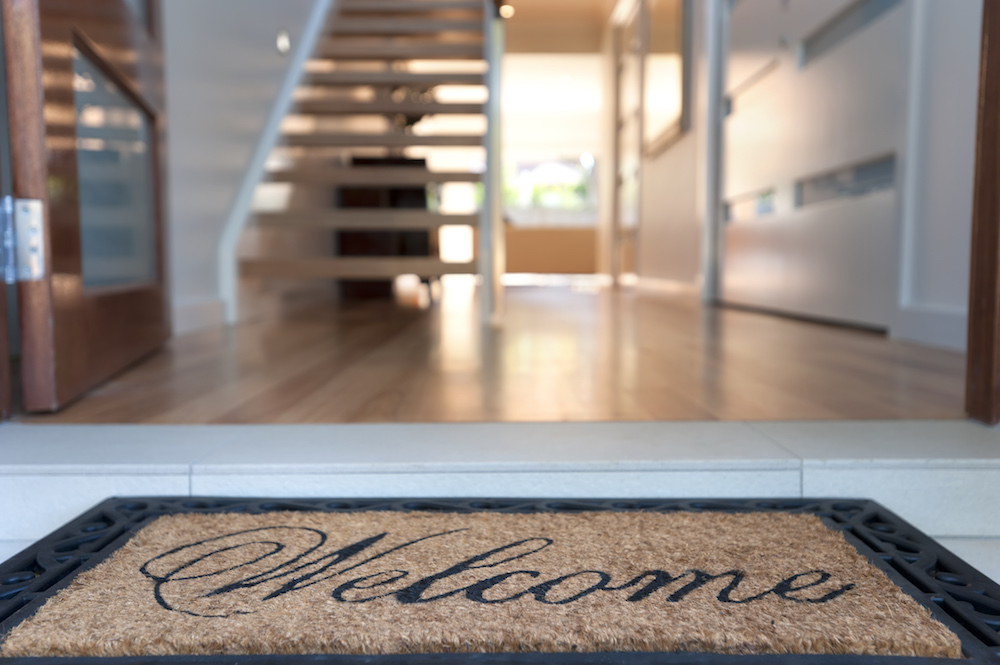
Welcome Home
Ready to step up your home’s clean routine? Start by limiting what you bring into the house by reviewing your front-door habits. While it’s a good idea to implement a no-outdoor-shoes-in-the-house policy, you can further curtail dirt and debris by putting door mats both inside and outside every entry door. If you can, consider keeping a bottle of hand sanitizer in your entryway, too – helping you get in the habit of cutting back on outdoor germs as soon as you come home.
Related: 12 Things Healthy, Happy People Don’t Keep in Their Homes
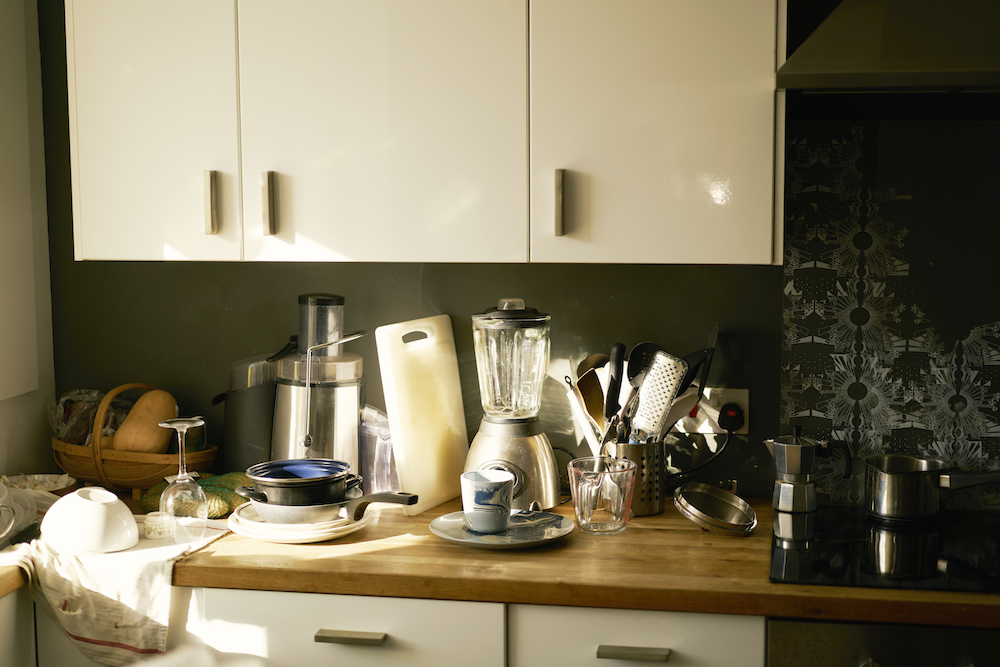
Clear the Clutter
Clutter is more than just a decor-detractor – unnecessary piles of papers and forgotten knick-knacks attract dust and debris. Even worse? A cluttered surface is harder to properly clean: While you might make an effort to clean a messy counter, for example, you’ll inevitably leave areas unsanitized. Instead, recycle or dispose of anything you don’t really need and use storage to organize your home. One big organizational effort can make a world of difference when it comes to better cleaning results in the future.
Related: Where to Take Your Used Appliances and Cabinets, by Province

Learn Your Labels
Not all cleaning products are made or work the same. Taking the time to carefully read the labels helps ensure that you’re using cleaning products properly – making the most of your time and effort. If you want the full benefits of a disinfecting product, for example, you can’t necessary just spray and clean – you’ll need to follow specific steps for it to be truly effective.
Related: 12 Time-Saving Spring Cleaning Tricks That Will Save Your Sanity
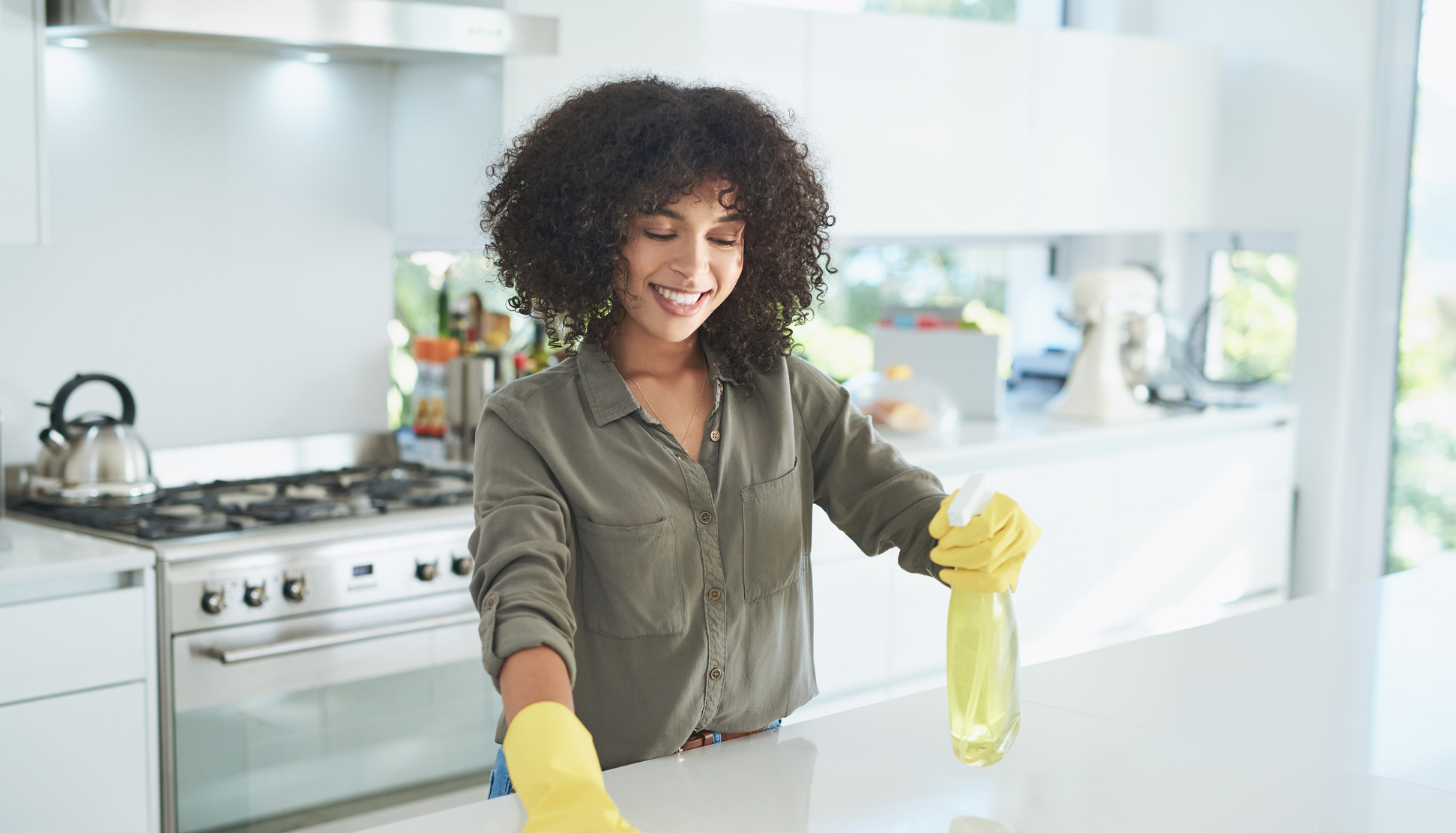
Break the Cycle
The specific products you use can make a big impact to the effectiveness and longevity of your cleaning efforts as well. In the past, disinfecting your home was a never-ending cycle: you’d clean and disinfect a surface, but then you’d touch it and spread bacteria – and immediately have to disinfect again. Now, however, certain sprays on the market can protect surfaces from the growth of bacteria in your home for 24 hours.
Related: 20 Fast and Easy House Cleaning Hacks Everyone Should Know
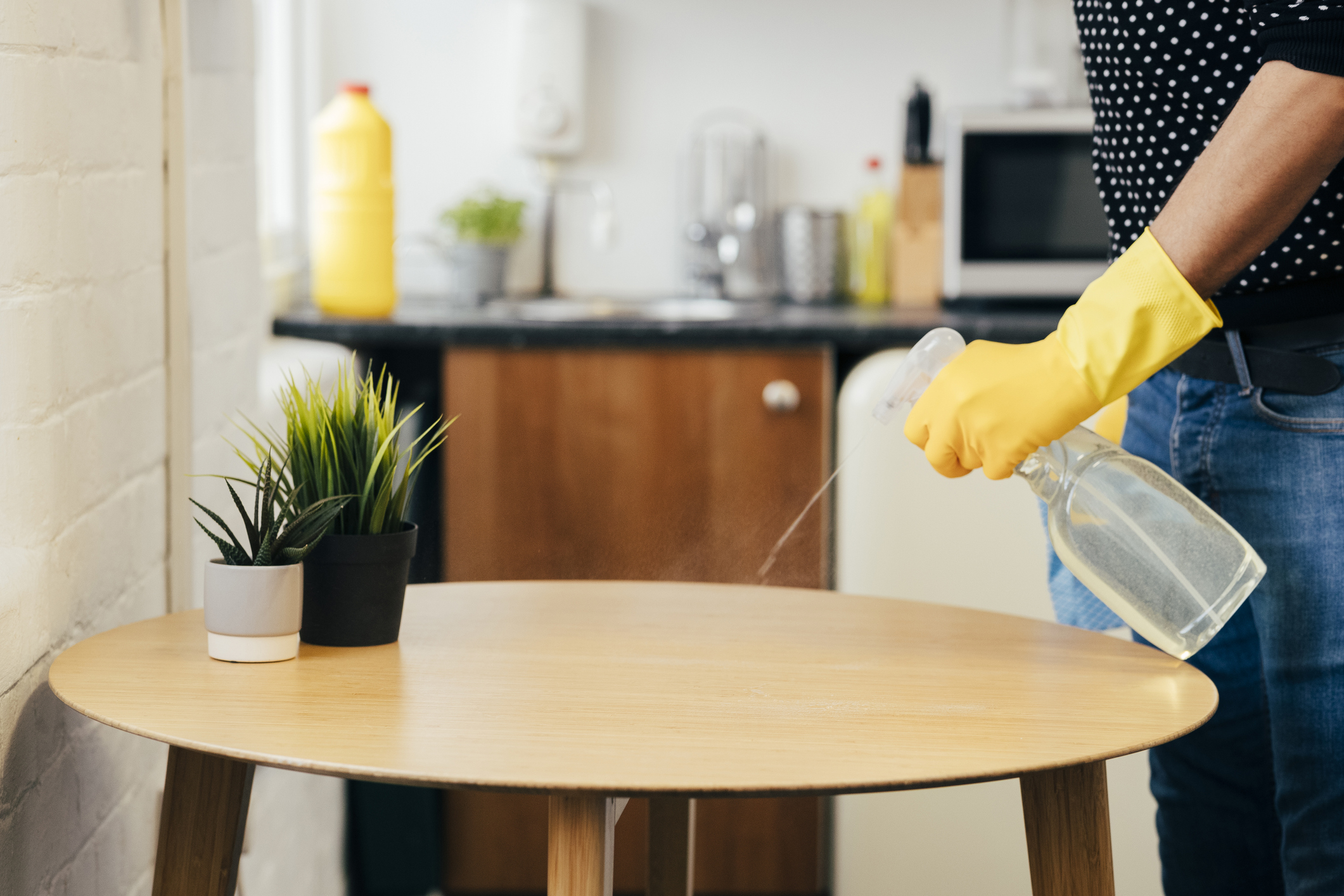
Spray Some Staying Power
When used as directed for 24-hour sanitizing, certain sprays can kill 99.9% of bacteria (Staphylococcus aureus and Enterobacter aerogenes bacteria) and keep working all day to keep hard surfaces sanitized – even in high-touch areas like your living room – after multiple touches. And, though the 24-hour benefit doesn’t apply to viruses, some products kill 99.9% of cold and flu viruses (specifically, Influenza A H1N1, Respiratory Syncytial Virus (RSV) and Human Coronavirus) within five minutes of being sprayed when used as directed as disinfectants.
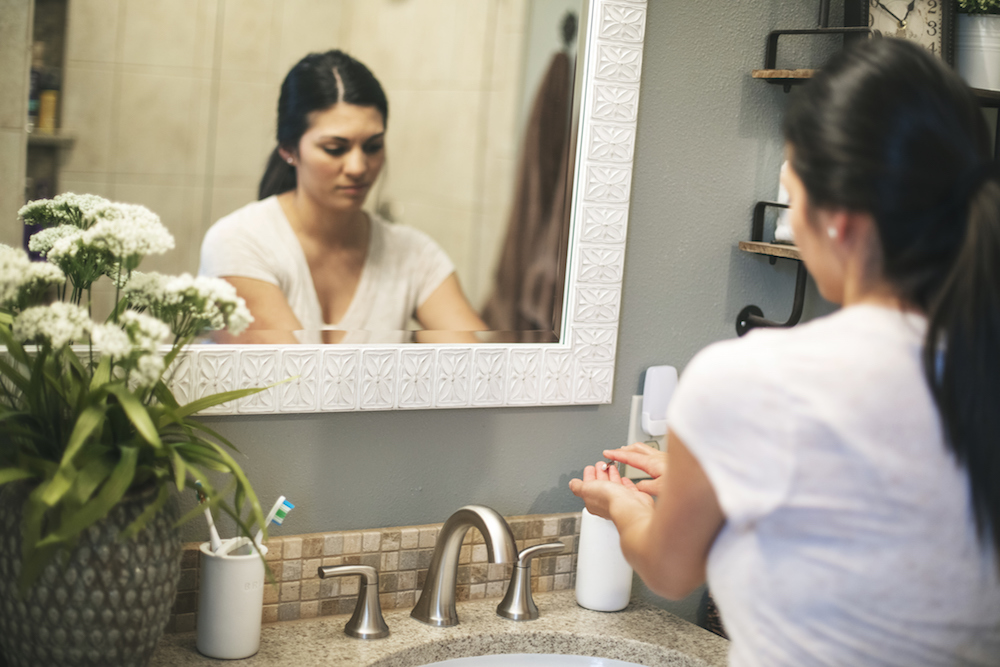
Wash Up
Of course, a key way to prevent the spread of bacteria and viruses on your home’s surfaces is to get rid of them before you touch anything. Wash your hands frequently and thoroughly throughout the day – for a minimum of 20 seconds with soap and water – to help preserve your home’s cleanliness.
Related: 10 Clean and Tidy Homes That Will Inspire You to Start Cleaning
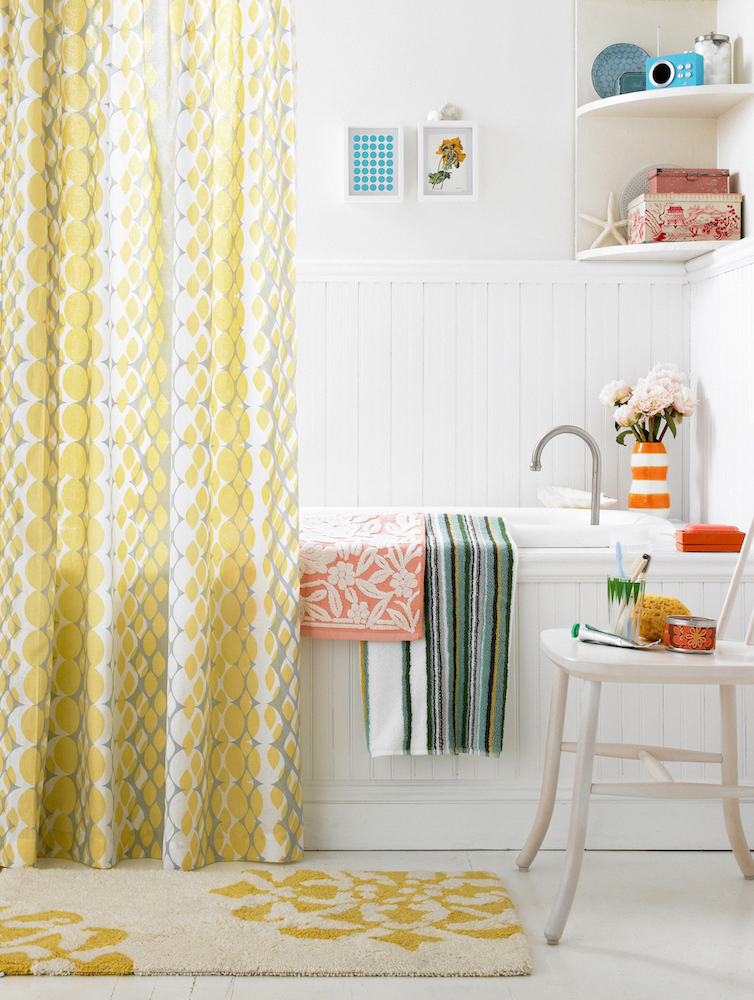
Curtain Call
Because it’s a natural environment for moisture, the bathroom may be a tough space to maintain. Building habits that cut back on wet, bacteria-breeding hotspots can help: after you shower, close the curtain behind you to allow the curtain’s folds to fully dry and always hang up wet towels.

Clear the Air
While the air you breathe inside your home may be out of sight, it shouldn’t be out of mind. Clean air doesn’t just smell fresh – good air quality can make your home feel better, too. To help keep your air as consistently clean as possible, regular change your air filters and take steps to check your home’s air quality. You can also use plants to help enhance air quality indoors.
Related: 21 Easy-to-Care-for Indoor Plants That Go Beyond Succulents
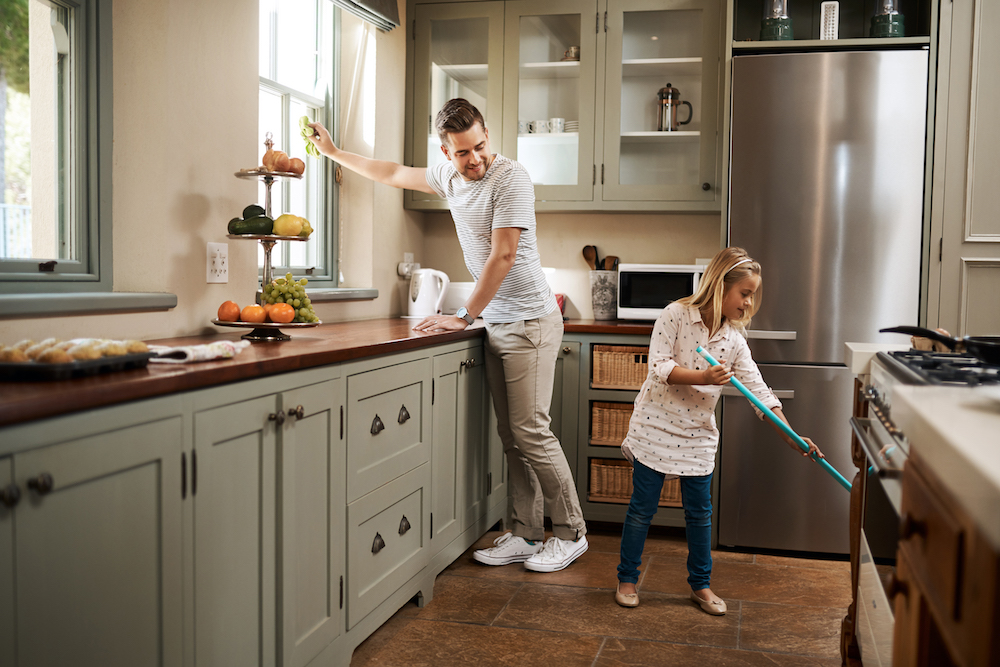
Make it Fun
If you live with other people, you’ll have a lot more luck maintaining a clean home if everyone joins in. Focus on the whole family – especially kids – learning good cleaning habits, to cut back on people undoing your work.
Related: 15 Ways You Can Teach Your Kids to be Organized, Highly Functioning Little Beings
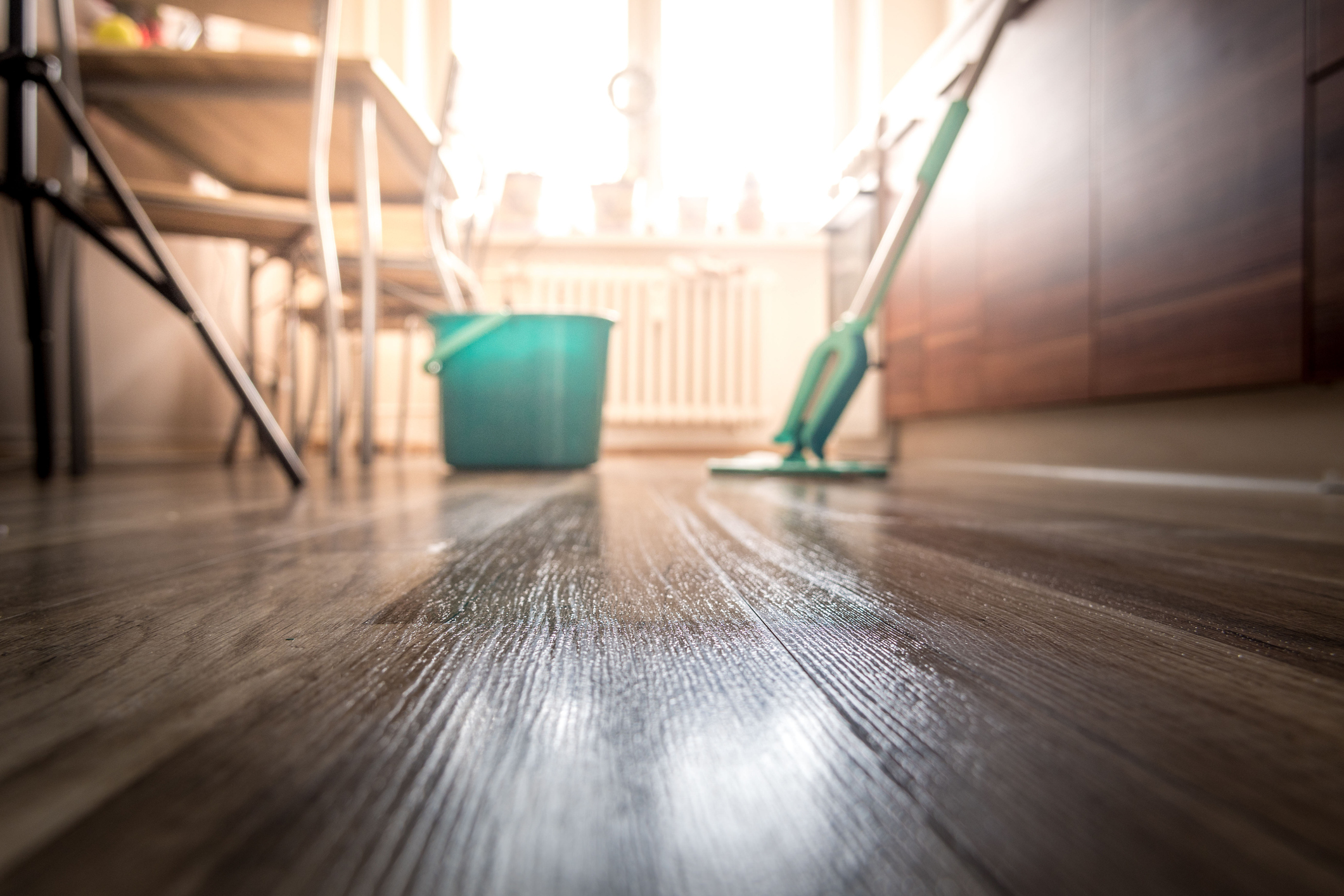
Remember Forgotten Spots
Finally, when doing a deep clean of your home, look for areas that you don’t regularly clean that could be contributing dust or dirt to your home. Check for spots above and below your regular sight lines – like the top of the fridge and baseboards. Cleaning and sanitizing these neglected areas can help keep them free of debris that could contaminate your home’s floors, surfaces and even air.
HGTV your inbox.
By clicking "SIGN UP” you agree to receive emails from HGTV and accept Corus' Terms of Use and Corus' Privacy Policy.




